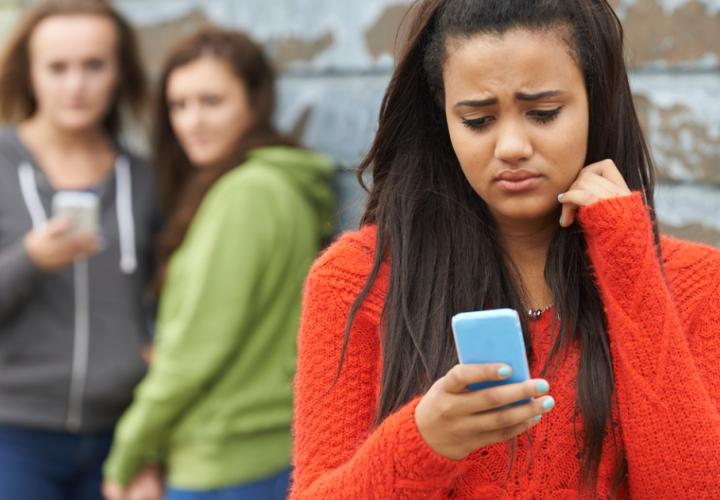On Tuesday, May 23, 2023, the U.S. Surgeon General issued a new warning over social media and youth mental health. Connecticut Children’s Pediatric Psychologist Bradley S. Jerson, PhD, answers popular questions from parents about this advisory…
How concerned should I be about the social media advisory from the U.S. Surgeon General?
We hope that parents and policy makers are activated by this advisory. Parents who have been experiencing the worsening mental health crisis in our youth these past years have already been concerned and have consistently been asking us questions about social media.
This advisory, as well as the recommendations from the recent guidelines put out by the American Psychological Association (APA), provide steps we can take to partner with our kids surrounding this issue. The recommendations also outline important next steps for more research, public policy changes, and how tech companies can help us all with this a bit more.
Why is there a need for a social media advisory?
Kids are in an entirely different brain development period than adults. As pediatric mental health professionals, we appreciate this warning for two reasons:
- Positive development: we care about the continued development of our kids’ brains in a positive and healthy manner.
- Vulnerability: because their brains are not fully developed, teens are also much more susceptible to some of the risks that were documented in this advisory. In early adolescence, when identities and sense of self-worth are forming, youth are especially susceptible to social pressures, peer opinions, and peer comparison.
Because the world of social media is constantly evolving – and there are new apps each month that come out – our youth have unfortunately sort of been like guinea pigs in this area. We are, in real time, seeing the negative impact of social evaluation, endless scrolling for peer comparison, and what happens when under-developed brains in kids and teens are exposed to harmful and hateful imagery, misinformation, and dangerous content. For youth who are highly engaged with social media for multiple hours per day, there is connection to increased anxiety, depression, isolation, and worsening mental health outcomes.
>Related: How Social Media Impacts Mental Health and Changes Brain Activity
Is social media all bad? Should I totally ban it?
There are some benefits for youth on social media. It can be a space for them to connect with like-minded people – especially those who may be marginalized or isolated within their communities. In addition, we know it can serve as a gateway to accessing health-related information, mental health resources and more.
>Related: Safety Features for Instagram, Facebook, Snapchat and TikTok
We don’t advise parents rip smart phones out of their kids’ hands. However…
How can I keep my kids safe from social media?
Great question. While the data clearly indicates that social media can pose a profound risk for greater harm to youth mental health, there are some steps parents can take to help encourage the positive side of social media:
- Monitor and limit: parents should closely monitor their children’s social media feed during early adolescence, roughly ages 10-14 years. Parents should try to minimize or stop the dangerous content their child is exposed to, including posts related to suicide, self-harm, disordered eating, racism and bullying.
- Keep the lines open: rather than simply blocking everything and prohibiting use, “monitoring” includes review, discussion, and direct coaching and training. Teens naturally value privacy as well – so we encourage parents to open this dialogue from a place of non-judgmental curiosity and not accusation or blame. With this as a foundation, autonomy increases as kids get older. Limit social media access for young children and early adolescents. More autonomy can be offered to high school students.
- Know the warning signs: be on the lookout for times that social media use becomes problematic such as interfering with sleep, school, activities and in-person socialization. For teens who have a balanced daily activity load (functioning at school, still doing all their activities, seeing friends in person, and sleeping well), it’s okay for them to have social media access within their balanced day.
- Encourage opportunity: parents can help kids create opportunities for social support, online companionship, and emotional intimacy that can promote healthy socialization. More detailed recommendations can be found in these recent APA guidelines on media use.
- Develop digital literacy early on: parents can help kids know how to, a) question the accuracy of social media content; b) understand the tactics used to spread misinformation; c) build and nourish healthy online relationships; d) solve social media conflicts; e) refrain from excessive social comparisons and; f) safely and accurately communicate about mental health concerns.
>Related: How to Keep Kids Safe from Cyberbullying
